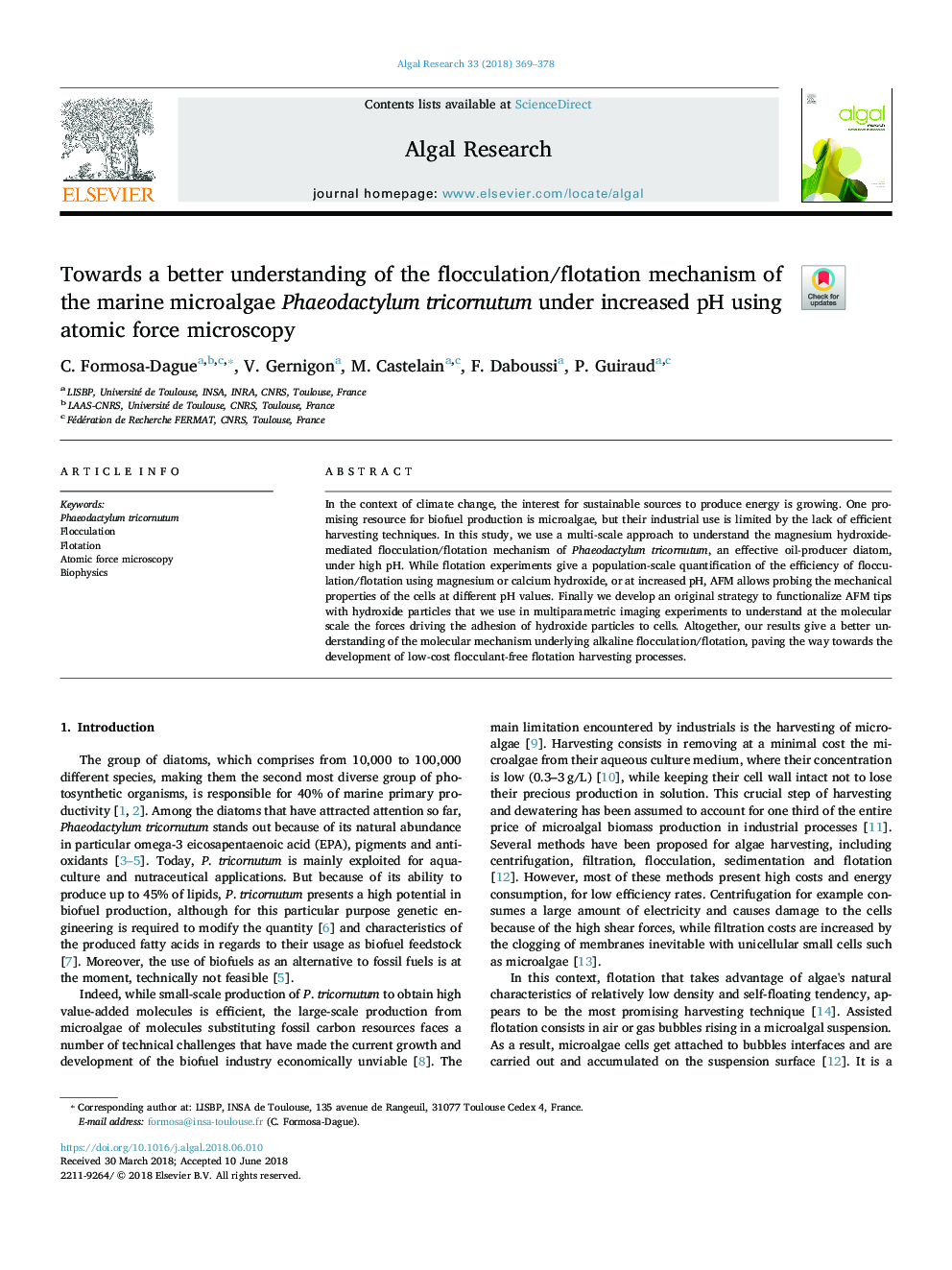| Article ID | Journal | Published Year | Pages | File Type |
|---|---|---|---|---|
| 8085771 | Algal Research | 2018 | 10 Pages |
Abstract
In the context of climate change, the interest for sustainable sources to produce energy is growing. One promising resource for biofuel production is microalgae, but their industrial use is limited by the lack of efficient harvesting techniques. In this study, we use a multi-scale approach to understand the magnesium hydroxide-mediated flocculation/flotation mechanism of Phaeodactylum tricornutum, an effective oil-producer diatom, under high pH. While flotation experiments give a population-scale quantification of the efficiency of flocculation/flotation using magnesium or calcium hydroxide, or at increased pH, AFM allows probing the mechanical properties of the cells at different pH values. Finally we develop an original strategy to functionalize AFM tips with hydroxide particles that we use in multiparametric imaging experiments to understand at the molecular scale the forces driving the adhesion of hydroxide particles to cells. Altogether, our results give a better understanding of the molecular mechanism underlying alkaline flocculation/flotation, paving the way towards the development of low-cost flocculant-free flotation harvesting processes.
Related Topics
Physical Sciences and Engineering
Energy
Renewable Energy, Sustainability and the Environment
Authors
C. Formosa-Dague, V. Gernigon, M. Castelain, F. Daboussi, P. Guiraud,
